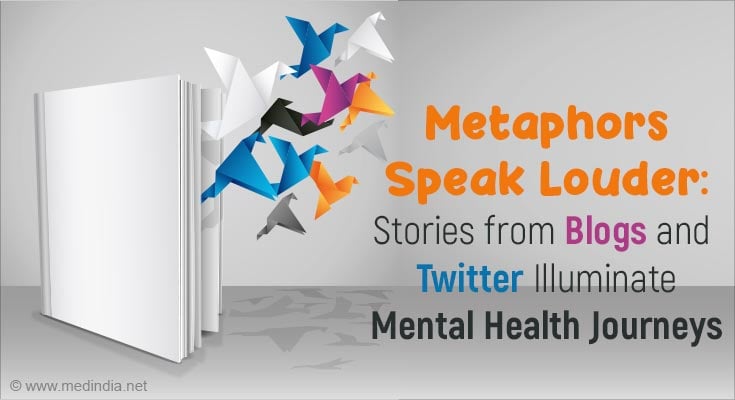- Mental health metaphors shape perceptions and narratives
- Empowering metaphors fosters empathy and understanding
- The dictionary aids in detecting psychopathology and tracking therapy progress
Metaphors extend beyond mere literary embellishments; they serve as linguistic tools in our daily lives, aiding in understanding and expressing the realities we encounter. At Universitat Oberta de Catalunya (UOC), researchers have developed the inaugural Mental Health Metaphor Dictionary (1✔ ✔Trusted Source
Metaphor repositories: the case of the mental health metaphor dictionary
).
This resource compiles and illustrates crucial conceptual metaphors employed in Spanish by individuals grappling with severe mental disorders, including schizophrenia, bipolar disorder, depression, and obsessive-compulsive disorder. Drawing from firsthand experiences of living with these conditions, the repository proves invaluable for mental health practitioners, communicators, family members, and individuals coping with these disorders.
Led by Marta Coll-Florit and Salvador Climent Roca of the Linguistic Applications Interuniversity Research Group (GRIAL) at the Faculty of Arts and Humanities, the dictionary aims to heighten societal awareness of the struggles endured by those with mental illnesses. The researchers assert that it prompts reflection on our discourse surrounding mental health, highlighting the profound impact of our language choices.
Advertisement
Metaphor Dictionary from the MOMENT Project
The dictionary emerges from the MOMENT project, which examines metaphors within the mental health domain and the underlying conceptualizations. The researchers emphasize that metaphors are not neutral; they shape perceptions of reality, often revealing implicit ideas.
For instance, phrases like “fight your illness” versus “live with your illness” evoke distinct perspectives—one emphasizing struggle, the other acceptance. Recognizing the potential of metaphors to empower or disempower, the researchers advocate for their conscientious use, particularly favoring “empowering metaphors” in public discourse and interactions with individuals diagnosed with mental disorders.
Structured alphabetically and thematically, the dictionary categorizes metaphors into living with a mental disorder, communication and social context, and medicine and professional practice. By systematizing these metaphors, the researchers aim to offer insight into the experiences and emotions of individuals with mental disorders, fostering a sense of understanding and connection.
Advertisement
Empowering Language in Mental Health
Notably, the repository draws from Spanish-language texts on blogs and X (formerly Twitter), providing unfiltered insights into lived experiences. This approach facilitates a broader range of metaphors, including critiques of the medical profession and expressions of societal stigma and discrimination. By promoting respectful discourse on mental health, the dictionary contributes to greater empathy and understanding.
Advertisement
The Path Forward: Understanding and Empathy
Moreover, the Mental Health Metaphor Dictionary serves as a potential tool for identifying psychopathology, offering clues to detect disorders and assess therapeutic progress. While it cannot replace clinical diagnosis, it provides valuable insights into patients’ mental states.
This pioneering initiative stands as the first repository of its kind in Spanish, filling a critical gap in domain-specific metaphor resources. As the scarcity of such repositories underscores, domain-specific collections like this hold immense societal value, offering nuanced insights into complex issues like cognition and health.
“Metaphors offer a window into the complex world of mental health, fostering empathy and breaking down barriers.”
Reference:
- Metaphor repositories: the case of the mental health metaphor dictionary – (https://academic.oup.com/dsh/article-abstract/38/4/1440/7295830)
Source-Medindia



